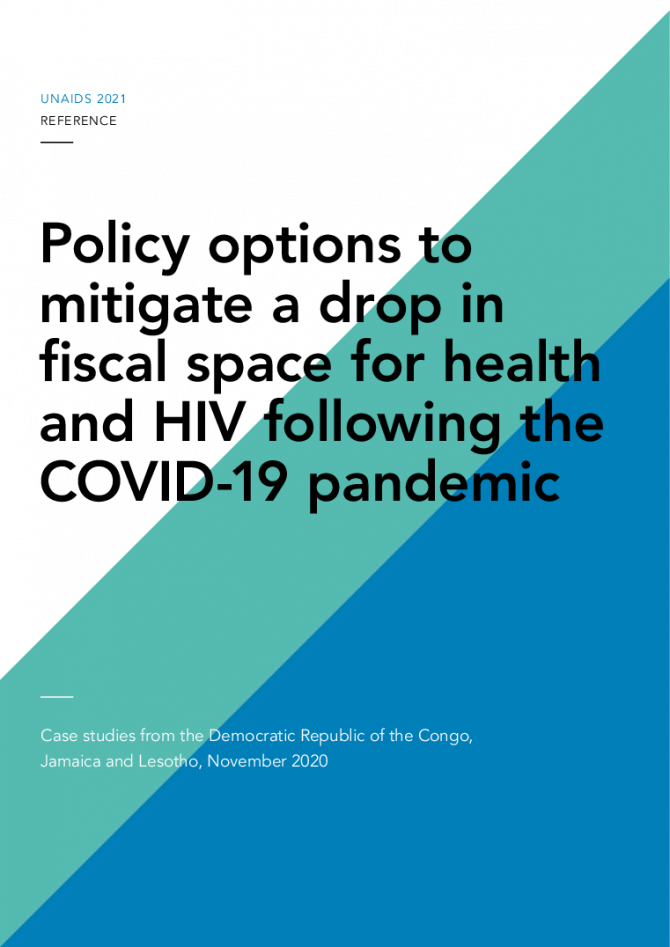Documents
Policy options to mitigate a drop in fiscal space for health and HIV following the COVID-19 pandemic — Case studies from the Democratic Republic of the Congo, Jamaica and Lesotho, November 2020
06 October 2021
To assess the impact of the COVID-19 pandemic on health and HIV expenditure, UNAIDS
carried out a modelling study on fiscal space for health and HIV. From a sample of
28 countries, three countries—the Democratic Republic of the Congo, Jamaica, and
Lesotho—were selected to capture health and HIV expenditure impacts across countries
with especially marked differences in burdens of disease (including HIV prevalence), HIV
donor dependency, level of economic development, and geographic location. While the
three-country sample is too small to permit findings to be generalized to other countries,
these analyses are useful for informing UNAIDS’ work to identify some policy positions to
minimize the COVID-19 pandemic’s impact on the HIV response.

